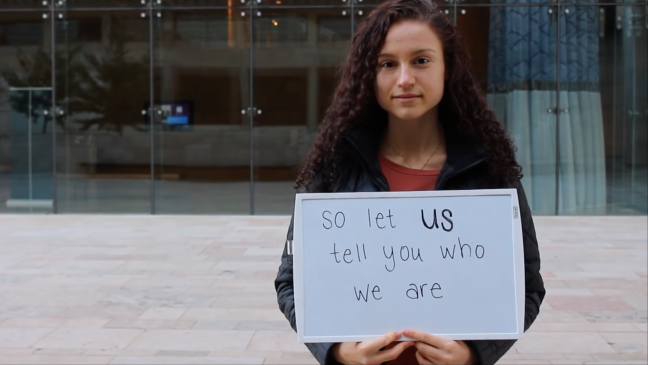Several students on campus recently received an email from the Wisconsin Public Interest Research Group, an on-campus special interest group, stating:
“We have a right to know what’s in the food we put into our bodies. There haven’t been any long-term studies on the health or environmental impacts of genetically modified foods, and we have no way of knowing whether or not the foods we eat contain GMOs [genetically modified organisms].”
At face value, this seems like a pretty innocuous statement, but as a scientist dedicating my life to plant genetics, it irked me. It might be a bit unfair to pick on WISPIRG as an example, but I’ve realized there is a vast growing contingent of anti-GMO activists, and it needs to stop — statements such as those above do nothing more than mislead and propagate fear.
The scientific argument of the anti-GMO movement is flat out nonexistent. “Progressives” usually pride themselves on being on the side of science, in regards to controversial issues such as climate change and stem cell research, and I’m happy they’ve been as vocal as they have been on those fronts. However, it is incredibly hypocritical to embrace the science of climate change and stem cells, yet blindly ignore the science behind GMOs and their benefits to society.
Put succinctly: “The GM debate is over. It is finished. We no longer need to discuss whether or not it is safe …You are more likely to get hit by an asteroid than to get hurt by GM food.” So Mark Lynas said, the British climate change activist and environmentalist who recently reversed his opinion on GMOs, despite personally helping to launch the anti-GMO movement in the 1990s.
I couldn’t have said it any better myself.
Many consumers in the US still contend we “don’t need” GMO crops. This could be because, generally, we aren’t starving like many others on this planet. Alternatively, currently marketed GMO crops have traits such as resistance to pests (Bt) and resistance to herbicides such as glyphosate (Roundup®), which have primarily benefited the farmer by reducing input costs; this is not necessarily evident to consumers, even though they benefit in the form of cheaper food. However, thanks to current GMOs, we have drastically reduced application of poisonous pesticides by millions of gallons, and we have reduced soil erosion and billions of pounds of CO2 emissions. This results from less fuel use and additional soil carbon storage from reduced tillage with biotech crops. If you’re an environmentalist, what’s not to like?
As mentioned by WISPIRG, one contention many anti-GMO activists maintain is that “no long term studies have been done on human health and the environment.” This is simply not true. Since the implementation of GMO crops in 1996, with trillions of meals served, zero ill effects on health have been documented in the human population from consuming GM food. Organic crops, typically not regulated as strictly as GMO crops, cannot say the same. There is broad scientific consensus that food on the market derived from GM crops poses no greater risk than conventional food. Furthermore, a recent meta-analysis by a team of Italian scientists cataloged and analyzed 1783 studies (a staggering number) about the safety and environmental impacts of GMO foods. They reached the same conclusion: GMOs are perfectly safe.
GMOs can also be used to enhance human health. GM crops such as Golden Rice, bioengineered to have high levels of pro-vitamin A (beta-carotene), could help cure an estimated 250 million children in the tropics who suffer from Vitamin A deficiency, which leads to blindness, a compromised immune system, and death — in fact, it is estimated a staggering 2-3 million children die every year from vitamin A deficiency. The real tragedy is that even though this GM crop was invented 15 years ago, it has yet to be implemented in the areas that need it due to opposition from fanatical groups such as Greenpeace, who were caught pulling up trials of the rice this year. This is the worst case of anti-GMO activism, where the antis are essentially culpable for hindering innovations that could prevent the death of millions.
GMOs represent one key tool in our toolbox to combat this challenge of feeding the world sustainably in the future. They will be needed to increase nitrogen efficiency, possibly by engineering nitrogen fixation from legume crops into other high-input crops which would drastically reduce energy consumption on conventional farms by eliminating the natural gas used in synthesizing fertilizers and the fuel burned in trucks that deliver that fertilizer to farms. They can deliver disease and pest resistance without the need for large-sale applications of agrochemicals. They can increase yields and productivity, creating more food on less land, thereby sparing land for nature even as we work to double food production by mid-century to keep pace with an ever-growing human population.
If you want to change the world, I beg you to open your eyes, as Mark Lynas did, to see that GMOs are part of the solution, not the problem. We need crops that are resistant to new diseases, that can cope with a changing climate and that enable us to feed an increasing population while minimizing the environmental impact of agriculture.
By opposing the development of GM, we are denying our scientists the use of a powerful technology for sustainability and food security, and we will have stalled an important and growing area of human knowledge. Please, encourage your peers to learn the science, educate yourselves and be an advocate for GMOs and science in general. The world will be sorry if you do not.
Scott Stelpflug ([email protected]) is a fourth year PhD student studying plant breeding and plant genetics at the University of Wisconsin.




















